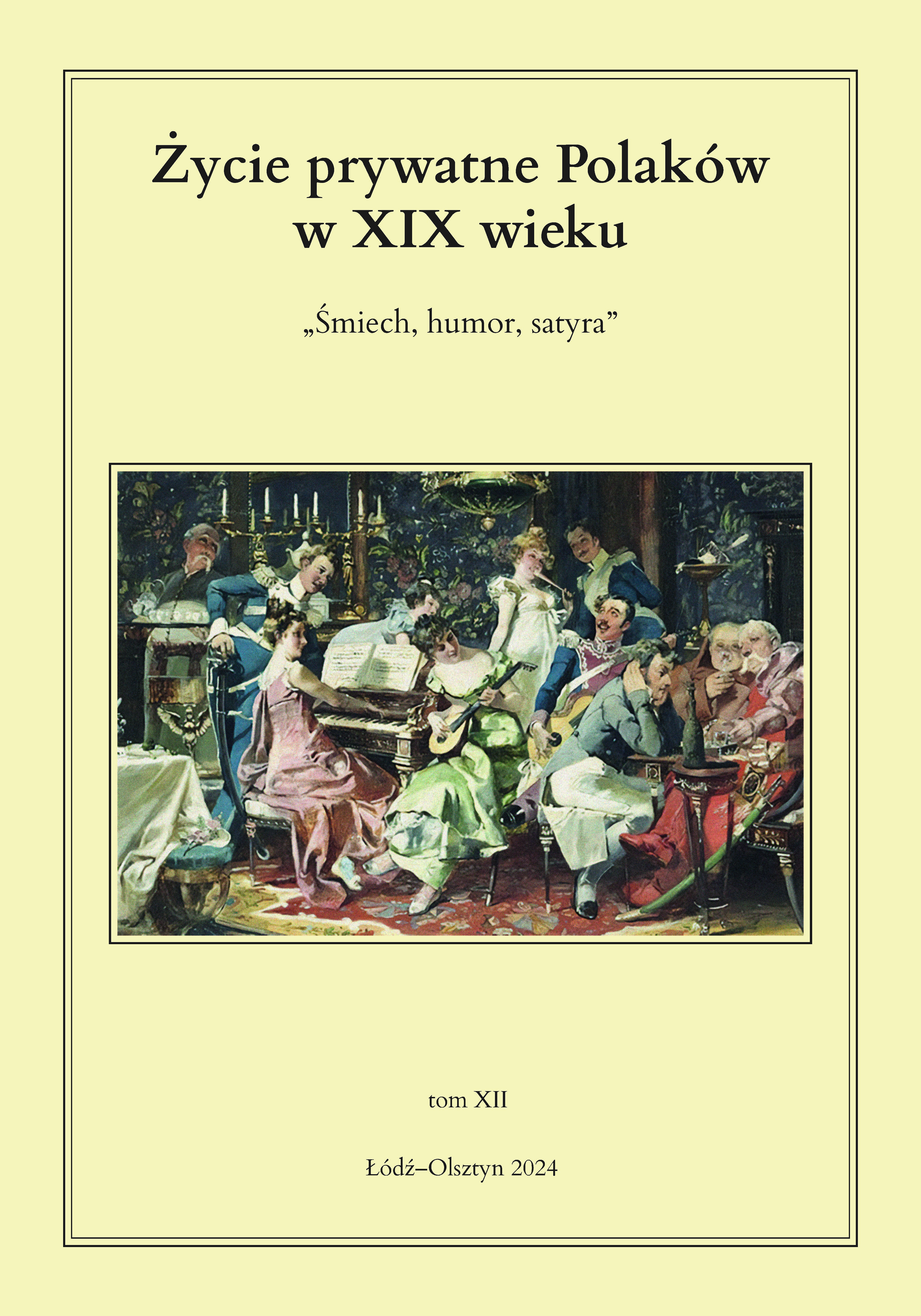Staropanieństwo i konwenanse, czyli humor w okowach sarkazmu
Old-fashionedness and conventions, or humor in the shackles of sarcasm
Author(s): Kinga Raińska
Subject(s): History, Cultural history, Sociology, Modern Age, 19th Century
Published by: Wydawnictwo Uniwersytetu Łódzkiego
Keywords: 19th century; woman; spinster; old bachelor; humor; sarcasm
Summary/Abstract: In the 19th century, it was widely believed that the overriding goal of every woman’s life should be to become a good wife and an exemplary mother. Throughout the epoch in question, a woman was treated as a dependent being, dependent on and subordinate to a man. For a woman, a male guardian was not only a guarantee of security, mainly in the physical and material sense, but also of many freedoms and social status. He gave her dignity, esteem, enabled her to dispose of financial resources, and was responsible for her behavior if necessary. A lonely woman, deprived of male care, was exposed to many unpleasant situations. She was treated insultingly as an inferior being. She had limited opportunities to participate in public and social life. Only getting married was a source of social privileges for her and socially ennobled her. In view of the above, the only right way to a fulfilled girl’s life was marriage. In addition, a society with a traditional division of roles did not tolerate differences. Every aspect deviating from the usual patterns was treated with contempt and mockery, which meant that spinsters were openly mocked. It was commonly believed that these people were funny, malicious, with a tendency to devotion, bizarre dispositions and sticking their noses into other people’s affairs. There was no end to jokes about people in a state of celibacy. Unrefined jokes were told about spinsters, and mocking graphics were published in newspapers. In press illustrations, they were caricatured as wrinkled, ugly, with indispensable attributes such as cats or canaries.
Book: Życie prywatne Polaków w XIX wieku. Śmiech, humor, satyra. Tom 12
- Page Range: 355-370
- Page Count: 16
- Publication Year: 2024
- Language: Polish
- Content File-PDF

